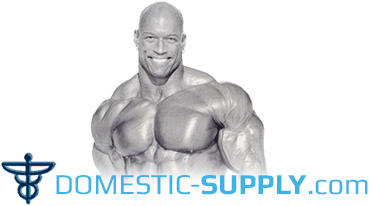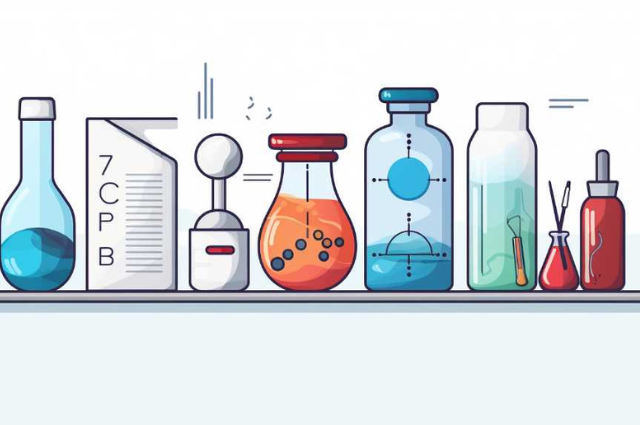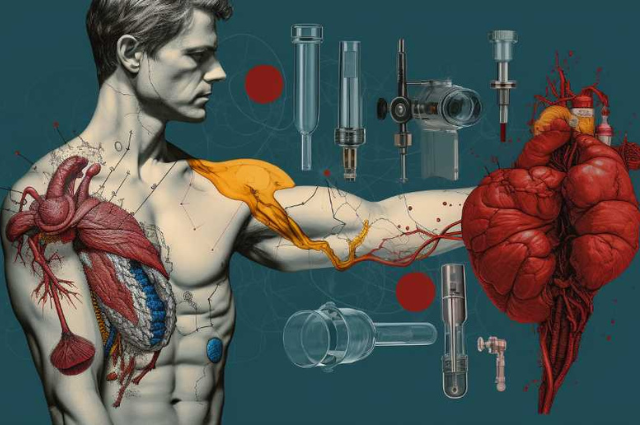What Are Natural Substitutes for Steroids?
The exploration of natural substitutes for steroids has gained prominence due to the numerous health risks associated with synthetic steroids.
Natural alternatives, derived primarily from plant extracts, nutrients, and dietary supplements, promise similar benefits without the associated side effects.
Substances such as branched-chain amino acids, proteins, healthy fats, and creatine are considered potential replacements.
Alongside these, maintaining a balanced diet and regular exercise regime are crucial.
This article will delve into the intricacies of these natural substitutes, their benefits, and how they compare to their synthetic counterparts.
A thorough understanding of these alternatives is critical for individuals seeking muscle gain and enhanced physical performance in a healthy, sustainable manner.
Key Takeaways
- Natural steroid alternatives are derived from plant extracts, dietary supplements, and other organic compounds.
- Certain foods and supplements like turmeric and omega-3 fatty acids have anti-inflammatory properties.
- Compounds like ecdysteroids found in spinach and quinoa have shown promising anabolic effects.
- Consultation with healthcare professionals is essential before making any changes to treatment.
Understanding Steroids: The Basics
While steroids are powerful anti-inflammatory drugs that can be effective in treating a variety of conditions, they also carry the potential for serious side effects. Steroids, also known as corticosteroids, are synthetic forms of hormones naturally produced by the body's adrenal glands. They are typically used to minimize inflammation and reduce the activity of the immune system, making them useful in treating diseases such as asthma, lupus, and rheumatoid arthritis.
However, despite their therapeutic benefits, the use of these drugs is not without risk. Prolonged or excessive use of steroids can lead to a number of health issues, including osteoporosis, increased risk of infection, cataracts, high blood sugar levels, and suppression of adrenal gland function. Furthermore, sudden discontinuation of steroid use can result in withdrawal symptoms due to the body's dependence on the drug.
Given these potential side effects, there is growing interest in identifying natural substitutes for steroids that can provide similar anti-inflammatory benefits without the associated risks. Such alternatives may include certain herbs, dietary supplements, and lifestyle modifications. However, it's essential to note that while these alternatives may help manage symptoms, they may not be as potent as steroids and should not be used as a substitute for professional medical advice.
Understanding the inherent risks and benefits of steroids is a critical first step in exploring potential natural substitutes. This approach ensures that individuals are making informed choices about their health and treatment options.
Natural Steroid Alternatives: Overview
Frequently, natural steroid alternatives are sought out by individuals looking to manage their inflammatory conditions without the adverse side effects associated with synthetic steroids. These natural options, derived from plant extracts, dietary supplements, and other organic compounds, have demonstrated potential in mimicking or enhancing the anti-inflammatory and immunosuppressive properties of synthetic steroids, hence garnering attention in the medical community and among patients.
Research has shown that certain foods and supplements such as turmeric, omega-3 fatty acids, and ginger possess anti-inflammatory properties, potentially offering a natural substitute for steroids. For instance, curcumin, the active ingredient in turmeric, has been extensively studied for its potent anti-inflammatory effect, which is comparable to that of some pharmaceutical steroids. Similarly, omega-3 fatty acids, commonly found in fish oil, have been proven to reduce inflammation, thereby alleviating symptoms in conditions such as rheumatoid arthritis.
For those seeking to promote muscle growth and strength, naturally occurring compounds like ecdysteroids found in spinach and quinoa have shown promising anabolic effects. A study published in the journal 'Archives of Toxicology' in 2019, indicated that ecdysteroids, especially the compound ecdysterone, demonstrated a stronger anabolic effect than the synthetic anabolic steroid methandienone.
However, while these natural alternatives present promising results, it must be noted that they are not as potent as their synthetic counterparts. Moreover, the effectiveness of these natural substitutes can vary significantly between individuals, and more research is needed to fully understand their efficacy and safety profiles. Therefore, it is essential for individuals to consult healthcare professionals before making any changes to their treatment regime.
Benefits of Branched-Chain Amino Acids
The effectiveness of branched-chain amino acids (BCAAs) as natural substitutes for steroids offers a compelling avenue for exploration in the realm of sports nutrition and therapeutic applications. BCAAs, comprising leucine, isoleucine, and valine, are essential amino acids, meaning they cannot be produced by the body and must be ingested through diet or supplementation.
In the context of athletic performance and muscle recovery, BCAAs have demonstrated significant potential. Research indicates several key benefits of BCAAs:
- They stimulate protein synthesis, crucial for muscle growth and repair. Studies show that BCAAs, particularly leucine, activate pathways in the body that stimulate muscle protein synthesis. This can be beneficial for athletes looking to enhance performance and for individuals seeking muscle recovery post-workout or injury.
- BCAAs may reduce muscle soreness and fatigue. Evidence suggests that BCAA supplementation can decrease muscle damage during exercise, leading to reduced onset of muscle soreness and a quicker recovery time.
- They can potentially enhance exercise performance. Research suggests BCAAs may improve mental and physical performance during exercise and delay onset of fatigue, particularly in endurance sports.
In the broader therapeutic scope, BCAAs have shown promise in managing liver disease, improving cognitive function in individuals with cirrhosis, and reducing muscle wasting in cancer patients. However, further research is needed to validate these potential applications.
Power of Proteins and Healthy Fats
Although branched-chain amino acids offer substantial benefits, it is crucial to consider the power of proteins and healthy fats as natural substitutes for steroids. Proteins, the building blocks of our body, play a significant role in muscle formation, repair, and recovery. Unlike anabolic steroids which introduce synthetic hormones into the body, proteins help the body to naturally synthesize its own muscle-building hormones such as testosterone and growth hormone.
A study published in the Journal of Applied Physiology found that dietary protein supplementation enhances muscle protein synthesis during periods of intense resistance training. This makes proteins not only a healthy alternative to steroids but also an effective one in achieving muscle growth and strength.
Healthy fats, on the other hand, are essential for the production and balance of hormones, including testosterone, which is vital for muscle growth. They also provide the body with energy, support cell growth, and help protect vital organs. A study in the Journal of Steroid Biochemistry and Molecular Biology found that diets rich in healthy fats like omega-3 fatty acids can increase testosterone levels, thereby supporting muscle growth.
Moreover, proteins and healthy fats can be consumed in large quantities from natural and readily available food sources. This not only renders them safer than steroids, but it also eliminates the risk of side effects often associated with steroid use.
Role of Creatine in Muscle Building
Moving onto another potent natural substitute for steroids, we delve into the role of creatine in muscle building. Creatine, a naturally occurring substance in muscle cells, is instrumental in producing energy during high-intensity exercise or heavy lifting. It is typically obtained from animal-based products such as meat and fish, or through supplementation.
The primary role of creatine in muscle building is its capacity to enhance strength and performance, which in turn leads to muscle hypertrophy. With its ability to increase phosphocreatine stores in the muscles, creatine supplements boost the production of adenosine triphosphate (ATP), the body's primary source of energy for heavy lifting and high-intensity exercise.
- Creatine supplementation has been scientifically proven to improve muscle strength and size. Studies have demonstrated a significant increase in muscle fiber size and lean body mass in individuals taking creatine.
- The Journal of International Society of Sports Nutrition reports that creatine monohydrate is the most effective nutritional supplement available today for increasing high-intensity exercise capacity and lean body mass during training.
- According to a meta-analysis in the Journal of Strength and Conditioning Research, creatine supplementation also enhances the body's ability to perform high intensity work.
Importance of Balanced Diet and Exercise
Emphasizing the significance of a well-rounded nutrition plan and regular physical activity, it is imperative to understand that no supplement, natural or otherwise, can substitute for a balanced diet and exercise regimen.
The human body operates optimally when nourished with a diverse range of minerals, vitamins, proteins, carbohydrates, and fats. These essential components are best derived from a varied diet, rich in fruits, vegetables, lean proteins, healthy fats, and whole grains.
Physical exercise complements a balanced diet by facilitating the efficient use of these nutrients. Regular physical activity enhances metabolic function, cardiovascular health, and muscular strength, thus, reducing the need for external aids, such as steroids. Furthermore, it assists in maintaining a healthy body weight, which is crucial for overall health and wellbeing.
A wealth of scientific research supports the interconnected role of diet and exercise in promoting health and mitigating disease risk. For instance, a systematic review published in the British Journal of Sports Medicine indicated that a combination of a balanced diet and regular physical activity significantly reduced the risk of chronic diseases, such as obesity, type 2 diabetes, and cardiovascular disease.
Risks Associated With Steroid Use
The use of synthetic steroids, despite their potential for enhancing physical performance, poses substantial health risks that warrant serious consideration. These risks have been well documented in both scientific literature and anecdotal reports, indicating a clear need for caution and moderation when using these substances.
Among the myriad potential health risks associated with steroid use, the following three are particularly noteworthy:
- Cardiovascular issues: Steroids can lead to heart disease, strokes, and blood clots. They can increase LDL (bad cholesterol) while decreasing HDL (good cholesterol), disrupting the balance and leading to atherosclerosis, a condition where fatty deposits build up in the arteries.
- Psychological effects: Steroids can have profound effects on mental health, including mood swings, irritability, aggression, and depression. In some cases, prolonged use can even lead to psychotic episodes.
- Hormonal disruptions: Steroids disrupt the body's natural hormone balance, potentially causing issues like testicular shrinkage, infertility, and gynecomastia in men, and menstrual irregularities and deepened voice in women.
The use of steroids, while enticing to some for their performance-enhancing effects, carries a significant risk. The potential for serious, even life-threatening health complications is high. It is therefore crucial that individuals considering their use are fully aware of these risks. It is also important to explore safer, natural alternatives to steroids that can provide similar benefits without the associated health risks.
Ultimately, the health costs of steroid use far outweigh the potential short-term gains in physical performance.
Effective Supplement Stacks for Muscle Gain
In pursuit of muscle gain without the detrimental health effects of steroids, one can consider the utilization of effective supplement stacks. These are combinations of dietary supplements that, when used together, can enhance muscle growth, strength, and recovery.
A popular stack consists of creatine, beta-alanine, and whey protein. Creatine, a compound naturally occurring in the body, has been shown to improve strength and lean muscle mass when supplemented in conjunction with resistance training. Beta-alanine, an amino acid, has been linked to increased muscular endurance, allowing you to workout harder and longer. Whey protein, on the other hand, provides the body with essential amino acids needed to repair and grow muscle tissue post-workout.
Another potent stack involves the combination of branched-chain amino acids (BCAAs), glutamine, and a high-quality multivitamin. BCAAs are crucial for muscle recovery and growth as they help reduce muscle soreness and fatigue. Glutamine, abundantly found in muscles, assists in preventing muscle breakdown and improving immune function. A multivitamin ensures that your body gets all the necessary nutrients it needs for optimal performance and recovery.
It's important to note that while these stacks can significantly enhance muscle gain, they are not a replacement for a balanced diet and regular exercise. Always consult with a healthcare professional before starting any supplement regimen. Moreover, individual responses to supplements vary, meaning results will differ from person to person.
Frequently Asked Questions
How Can Natural Substitutes for Steroids Affect Hormonal Balance in the Body?
Natural substitutes for steroids, such as plant-based compounds and vitamins, can influence hormonal balance in the body. They can stimulate the body's own hormone production or mimic the effects of hormones, restoring equilibrium.
However, their effectiveness and safety can vary. It's essential to consult with healthcare professionals before using these substitutes to ensure they do not interfere with existing medical conditions or treatments.
Can Natural Substitutes for Steroids Cause Allergic Reactions or Other Side Effects?
Yes, natural substitutes for steroids can potentially cause allergic reactions or other side effects. These reactions largely depend on the individual's body chemistry and tolerance to specific substances.
Some common side effects may include skin rashes, digestive issues, or headaches.
It is advisable to consult a healthcare professional before starting any new supplement or treatment regimen to ensure it is safe and suitable for your specific health conditions.
What Are Some Foods That Are Rich in Natural Steroids?
Several foods are rich in natural steroids, offering a healthier alternative to synthetic versions. Quinoa, for instance, contains ecdysteroids that mimic the effects of anabolic steroids. Spinach is rich in phytoecdysteroids, which enhance muscle growth. Celery contains two natural steroids, androstenone and androstenol.
Other foods like wild oats, raw chocolate, and fenugreek are also known for their steroid-like effects. These foods may help boost strength, recovery, and muscle growth.
Are Natural Substitutes for Steroids as Effective as Synthetic Ones in Treating Medical Conditions?
The effectiveness of natural substitutes compared to synthetic steroids largely depends on the specific medical condition being treated. Some studies suggest certain natural compounds may have similar anti-inflammatory properties to synthetic steroids.
However, for serious conditions like autoimmune diseases, synthetic steroids are generally more potent and fast-acting. It's essential for patients to consult with their healthcare provider before switching to natural substitutes.
Can Natural Steroid Alternatives Interact With Other Medications or Supplements?
Yes, natural steroid alternatives can interact with other medications or supplements. These interactions can alter how the substances work and increase the risk of side effects. Some common interactions include potentiation of blood-thinning effects when used with anticoagulants, and potentially adverse effects when used alongside other hormone therapies.
It is crucial to consult with a healthcare professional before starting any natural supplement, especially if you are taking other medications.
Conclusion
In conclusion, natural substitutes for steroids such as branched-chain amino acids, proteins, healthy fats, and creatine play significant roles in muscle building and overall health.
Combined with a balanced diet and regular exercise, these alternatives can potentially provide similar benefits to steroids without the associated risks.
The efficacy of these substitutes underscores the importance of natural, sustainable approaches to fitness and bodybuilding.






